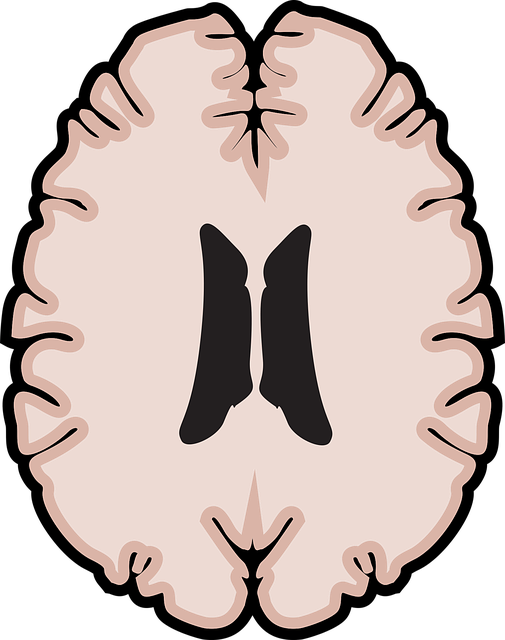Mental wellness, a holistic concept encompassing emotional, psychological, and social well-being, is crucial in today's fast-paced world with high burnout rates. Effective communication strategies and cultural sensitivity in mental healthcare are vital for inclusive environments that respect individual identities. Littleton Gender-Affirming Care Therapy (LGACT) offers a groundbreaking approach, focusing on gender identity affirmation to improve mental health. This specialized therapy creates safe spaces for authentic expression, reducing anxiety and depression symptoms. By integrating LGACT, mental health services become more inclusive, effective, and tailored to diverse needs, leading to improved outcomes and reduced risks of gender dysphoria-related issues.
Mental wellness promotion is a vital aspect of holistic health, impacting every facet of our lives. This comprehensive article delves into essential strategies for fostering mental well-being, with a specific focus on the transformative power of gender-affirming care. We explore its role in therapy, from understanding its significance to examining real-world examples like Littleton Gender-Affirming Care Therapy. Additionally, we address barriers to accessing services and provide practical tips for creating supportive environments.
- Understanding Mental Wellness and Its Significance
- The Role of Gender-Affirming Care in Therapy
- Strategies for Promoting Mental Health in a Supportive Environment
- Overcoming Barriers to Accessing Mental Wellness Services
- Littleton Gender-Affirming Care Therapy: A Case Study
Understanding Mental Wellness and Its Significance

Mental wellness, a multifaceted aspect of overall health, encompasses emotional, psychological, and social well-being. It’s about more than just the absence of mental illness; it involves fostering resilience, managing stress, and cultivating a sense of purpose. In today’s fast-paced world, where burnout is prevalent, understanding and prioritizing mental wellness is crucial for individuals and communities alike. This becomes especially evident when considering the unique needs of diverse populations, such as those seeking Littleton Gender-Affirming Care Therapy.
Effective communication strategies and cultural sensitivity in mental healthcare practice play a pivotal role in promoting mental wellness. Therapists and caregivers must create safe, inclusive spaces that respect individual identities and experiences. By integrating these principles, mental health professionals can prevent burnout and ensure sustainable support for their clients. This approach not only enhances the therapeutic process but also contributes to building resilient communities where everyone feels valued and heard.
The Role of Gender-Affirming Care in Therapy

In the realm of mental wellness promotion, gender-affirming care has emerged as a transformative approach, particularly impactful for individuals navigating their identity and well-being. Littleton Gender-Affirming Care Therapy is a specialized service that recognizes the profound impact of affirming one’s gender identity on overall mental health. This therapeutic model prioritizes creating safe spaces where clients can explore and express themselves authentically, fostering emotional healing processes and enhancing self-acceptance.
Effective communication strategies are at the heart of this care approach. Therapists skilled in these methods facilitate open dialogue, encouraging patients to share their experiences and concerns freely. By implementing tailored communication techniques, therapists build trust and strengthen the therapeutic alliance, which is vital for successful mental health interventions. This personalized approach ensures that every client receives support aligned with their unique needs, contributing to a more inclusive and effective mental health awareness and care system.
Strategies for Promoting Mental Health in a Supportive Environment

Promoting mental wellness in a supportive environment involves a multifaceted approach tailored to meet individual needs. One effective strategy is incorporating Littleton Gender-Affirming Care Therapy, which creates a safe space for individuals to explore their identities and express themselves authentically. This form of therapy has been shown to significantly reduce symptoms of anxiety and depression, fostering an environment where people feel understood and valued.
Additionally, conflict resolution techniques and empathy building strategies play a crucial role in cultivating a supportive atmosphere. By teaching individuals effective communication and understanding others’ perspectives, these tools empower them to navigate relationships with greater ease, reducing stress and promoting emotional well-being. Initiatives aimed at Depression Prevention should also be integrated, focusing on early intervention, education, and access to resources that support mental health maintenance.
Overcoming Barriers to Accessing Mental Wellness Services

Accessing mental wellness services can often be hindered by various barriers, especially for marginalized communities. Stigma surrounding mental health issues remains a significant challenge, leading many to feel ashamed or embarrassed about seeking help. In areas like Littleton, where Cultural Sensitivity in Mental Healthcare Practice is paramount, ensuring that services are inclusive and non-judgmental is crucial. Many individuals, particularly those from diverse backgrounds, may avoid therapy due to past negative experiences or a lack of understanding of available options, such as Gender-Affirming Care Therapy.
Public Awareness Campaigns Development plays a vital role in breaking down these barriers by educating the public about mental health and available resources. Risk Assessment for Mental Health Professionals is also essential to ensure that practitioners are equipped to handle diverse client needs while maintaining ethical standards. By addressing these challenges, communities can foster an environment where seeking mental wellness support is encouraged, making services more accessible and effective for all.
Littleton Gender-Affirming Care Therapy: A Case Study

In recent years, Littleton Gender-Affirming Care Therapy has emerged as a pioneering approach in mental wellness promotion, particularly for individuals navigating their gender identity. This case study highlights a unique therapeutic model that prioritizes affirming and validating an individual’s self-expression, regardless of societal norms or traditional expectations. By integrating this method into broader mental health services, healthcare providers can significantly enhance the effectiveness of support offered to transgender and non-binary folks.
The therapy focuses on creating a safe, inclusive environment where patients can develop a strong sense of self through self-care routine development. This includes teaching stress reduction methods and promoting mental health education programs designed to challenge societal biases and foster understanding. As a result, individuals are empowered to make informed decisions about their well-being, leading to improved overall mental wellness and a reduced risk of anxiety, depression, or other psychological issues often associated with gender dysphoria.
Mental wellness promotion is a multifaceted approach that benefits from understanding, affirming, and supporting individuals’ unique needs. As highlighted by the Littleton Gender-Affirming Care Therapy case study, providing gender-affirming care can significantly enhance therapeutic outcomes. By combining strategies like creating supportive environments and overcoming barriers to access, we can foster a society where everyone has the opportunity to thrive. Through continued education and innovative practices, such as those explored in this article, we move closer to ensuring mental health services are inclusive and effective for all.














